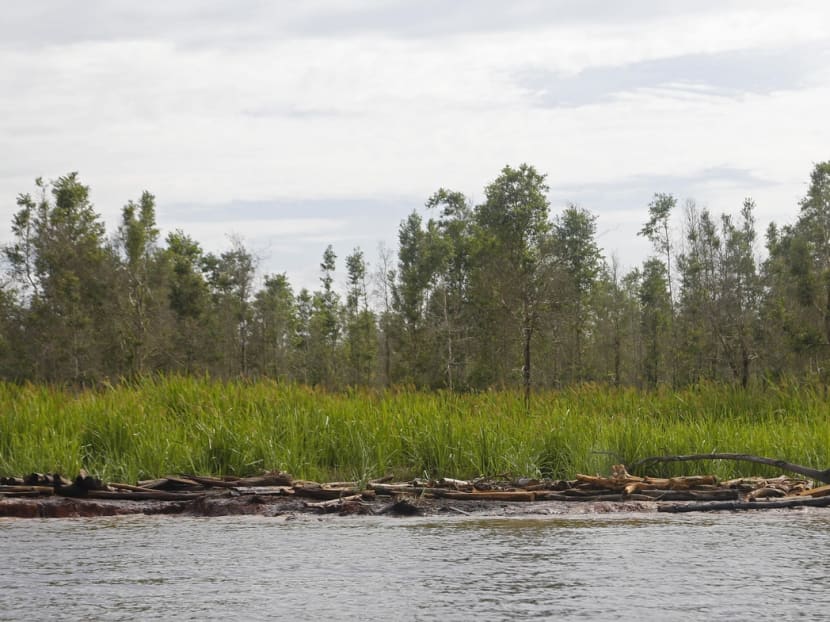APP committed to stopping haze and zero deforestation
We refer to the letter “Tackling new mills a key way to stop the haze at source” (April 23). We thank Mr Chris Cheng Chin Hsien for his views.

A plantation owned by Asia Pulp and Paper along the Musi River in Sumatra. The firm is ensuring its new mill respects its Forest Conservation Policy. Photo: Raj Nadarajan
We refer to the letter “Tackling new mills a key way to stop the haze at source” (April 23). We thank Mr Chris Cheng Chin Hsien for his views.
The haze, which blanketed the region last year, was a catastrophe for the environment, the economy and, most importantly, people’s lives.
As a company, we were deeply affected by the events last year, and have intensified our efforts to do whatever we can to ensure that such a tragedy is never repeated.
Forest fires are complex and rooted in a number of economic, social and political causes.
Above all, what is required is a multi-stakeholder approach towards seeking solutions.
We recognise the link between land clearance and the production of forest commodities. That is why Asia Pulp and Paper (APP) Group has been bound by a strict zero-deforestation commitment enshrined in our Forest Conservation Policy (FCP) since February 2013.
The policy includes a number of key pillars. Among them are that there be no further clearance of natural forests, including peat forests, and the adoption of peatland management best practices by all our pulpwood suppliers.
Over the past three years, we have worked hard to develop a reliable supply of 100 per cent plantation wood for our mills.
While the new mill at OKI in South Sumatra significantly increases APP’s production capacity, we are absolutely clear that our FCP commitments come first, over and above maximising our production. Any future increase in production will be subject to the availability of raw materials from our suppliers.
To ensure that our new mill can reach optimum levels of production while fully respecting our commitments made in the FCP, we are taking the following steps:
First, increasing productivity and yield in our plantations by working on improved control of pests and diseases, reducing mortality and wastage as well as increasing efficiency in our harvesting methods by using mechanisation techniques.
Second, research into new species in partnership with engineering and development consultancy firm Euroconsult Mott MacDonald to identify alternative plant species that can provide better yields and thrive in wetter peatland conditions.
Third, embracing community forestry into our supply chain according to government regulations and guidelines to adopt local wisdom, reduce poverty and enhance the alternative livelihoods of communities living in and around our concessions through agroforestry.
Fourth, sourcing woodchips from global suppliers if the measures above still prove insufficient, but only from suppliers that meet our Responsible Fiber Procurement and Processing Policy requirements.
The commitments we made in the FCP come first. The OKI mill entering into production will not affect our commitment.
In the meantime, we remain committed to working with all affected stakeholders to do everything we can to ensure last year’s events are not repeated.









